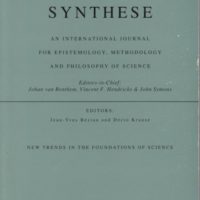
Autism, epistemic injustice, and epistemic disablement: a relational account of epistemic agency
Co-publication d’un article intitulé « Autism, epistemic injustice, and epistemic disablement: a relational account of epistemic agency » par Amandine Catala, Luc Faucher et Pierre Poirier, dans Synthese.
Résumé
The contrast between third- and first-personal accounts of the experiences of autistic persons has much to teach us about epistemic injustice and epistemic agency. This paper argues that bringing about greater epistemic justice for autistic people requires developing a relational account of epistemic agency. We begin by systematically identifying the many types of epistemic injustice autistic people face, specifically with regard to general assumptions regarding autistic people’s sociability or lack thereof, and by locating the source of these epistemic injustices in neuronormativity and neurotypical ignorance. We then argue that this systematic identification pushes us to construe epistemic agency as resulting from a fundamentally relational and dynamic process between an individual, others around them, and their social, cultural, or institutional environment, rather than as a fixed and inherent property of individuals. Finally, we show how our relational account of epistemic agency allows us to introduce the novel concepts of epistemic disablement and epistemic enablement. We argue that these two concepts allow us to more accurately track the mechanisms that undermine or facilitate epistemic agency, and thereby to better understand how epistemic injustice arises and to design more effective interventions to foster greater epistemic justice for autistic people.



